Sunset, Friday, 20 November 2009
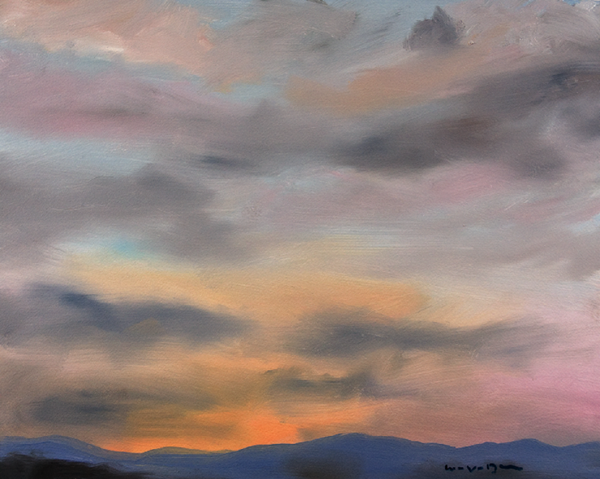 William Theodore Van Doren. Stony Point, Albemarle County, Va. Oil on paper, 16 x 20.
William Theodore Van Doren. Stony Point, Albemarle County, Va. Oil on paper, 16 x 20.
I’m happy the sun came back out for my brother Steve’s 60th birthday.
Rain, earth, sun. That’s more or less the theme from a long walk today, although those three elemental words immediately distracted me by making me think of writing about D.H. Lawrence. Another time. D.H. did loop back around to my brother, whose middle name is Lawrence, but I guarantee Steve wasn’t named for any author.
My college roommate recently wrote, “I was raised to consider myself part of an intellectual elite.” That just goes to show what an interesting culture gap we had to deal with in our early days at Hopkins. Steve and I et al. were raised to consider ourselves ... I have no idea!
Steve’s name was inspired by Steve Van Buren (Stephen W.), a pro football hero whose greatest fame came with the NFL championship games of 1948 and 1949. I don’t think Steve has ever given much consideration to the curious fact that he was named after a running back for the Philadelphia Eagles, of all things – not exactly a well-loved franchise in our experience.
Anyway, even though the Van Doren family, at least, had, in previous generations, a pretty strong tradition of preserving and passing names around, I suspect my parents were part of a (possible?) postwar trend toward naming your kid any damn thing you wanted. I’m the only one who got someone’s name – my grandfather’s – which was his grandfather’s, so break out the roman numerals. I think the story we always heard was that ‘Stephen Lawrence Van Doren’ sounded good.
Sounds very good to me.
Rain, earth, sun. But look, before I get there, I have to ask. My wonderful, many-marvel’d spouse, who is hardly ever wrong – as a consequence of which I now owe her exactly $8700 from all the bets I’ve lost with her – thinks that posts like this one – you know, the ones where it sounds like maybe I got only three hours of sleep and then walked seven miles, so that I go off on the slightest tangent through a lack of inhibitory frontal cortex function – anyway, that people might not like such long posts. What do you think? If you disagree with Laura I will be especially interested in hearing from you. There’s no money involved, unfortunately.
At the first stream we (Flint the foxhound and I) crossed today, I was struck by the effects of yesterday’s storms. The stream banks, where they’re normally a smooth, almost shiny sandy clay, had been beaten down into a flat, matte, finely stippled surface much like the beach after a long steady rain. The water of such a small stream, only yards from the source, is usually quick to rise and just as quick to fall, leaving a clear low current just as before – but today, 12 hours after the rain had ended, the water was still somewhat up and, I was surprised to see, slightly turgid. Dead leaves were pasted to the ground, the trunks of beeches, hollies and poplars looked scrubbed and a clearing sky seemed reflected in the field.
The rain, in short, had washed the face of the earth. (And even though hundreds if not thousands must have written this before, it feels so accurate to my impression I don’t care.)
Thanks to the wash, we could see along the jeep trail that no hunters had come in today. This meant a lot less uncertainty about what was out there in the 1000+ acres, and less likelihood of “Cold Mountain moments.” That’s what I call creepy, spooky feelings like those the reader gets when Inman is up in the isolated deep mountains and you don’t know if the Home Guard is about to find him. In my case, they can come from not knowing where hunters are or not knowing what Flint may be barking at or chasing, off in the distance.
As for Charles Frazier’s intensely wrought creation – I don’t mean to quibble – it’s not every book that earns a place in one’s vocabulary – but I wouldn’t have minded holding it open to the rain and washing out just a little of the melodrama. In a sense I wanted fewer Cold Mountain moments in Cold Mountain. But that’s me. I’m also crazy enough to wonder, quite seriously, if entire novels might be constructed from rain, earth, sun.
 Friday, November 20, 2009 at 06:14PM | by
Friday, November 20, 2009 at 06:14PM | by  BVD | in
BVD | in  Sunset Paintings | tagged
Sunset Paintings | tagged  Blue Ridge,
Blue Ridge,  Charles Frazier,
Charles Frazier,  Cold Mountain,
Cold Mountain,  D.H. Lawrence,
D.H. Lawrence,  Flint the foxhound,
Flint the foxhound,  Johns Hopkins University,
Johns Hopkins University,  Laura Owen Sutherland,
Laura Owen Sutherland,  Laurence Shatkin,
Laurence Shatkin,  Philadelphia Eagles,
Philadelphia Eagles,  Stephen Van Doren,
Stephen Van Doren,  Steve Van Buren | | Comments Off
Steve Van Buren | | Comments Off 
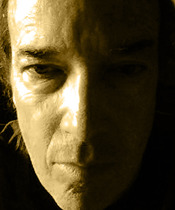

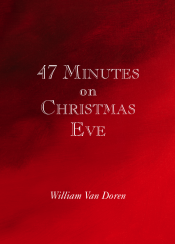
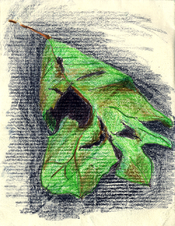

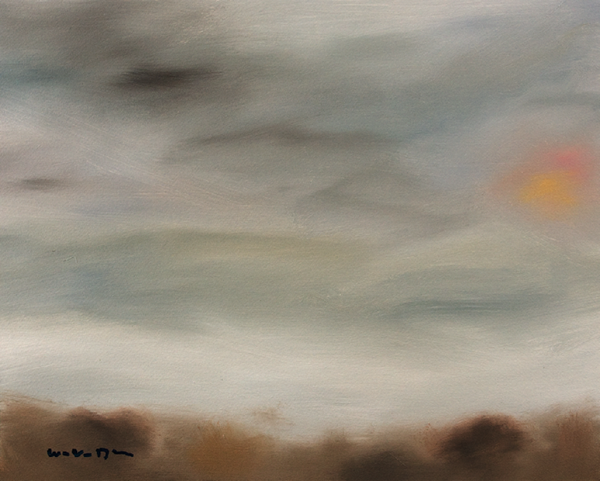
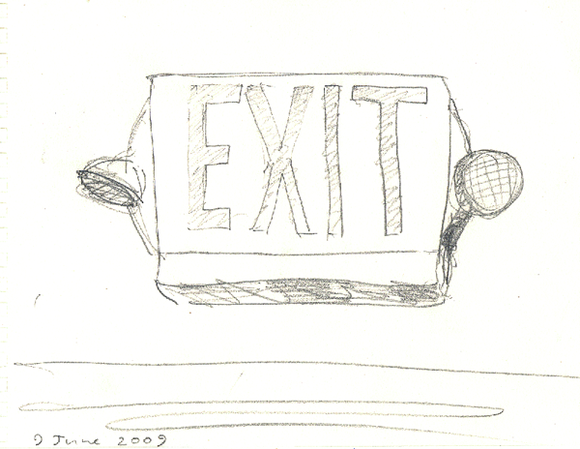
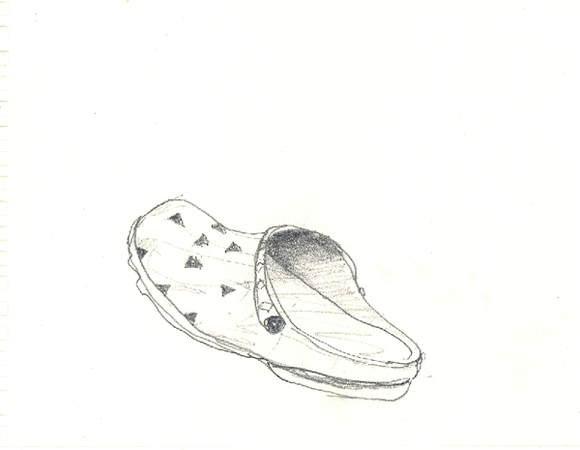
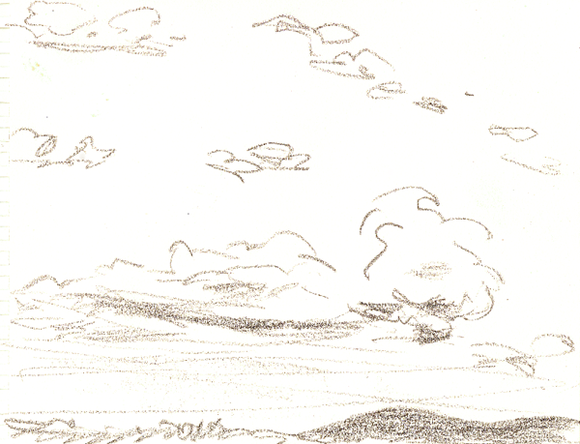
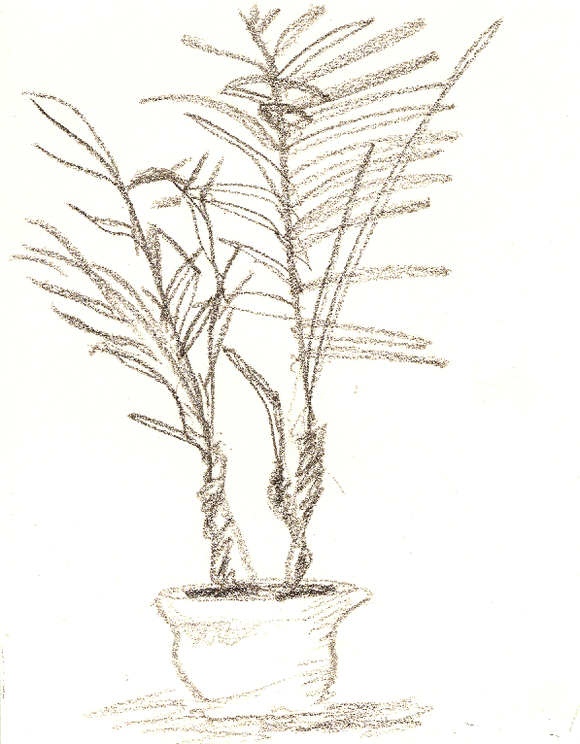
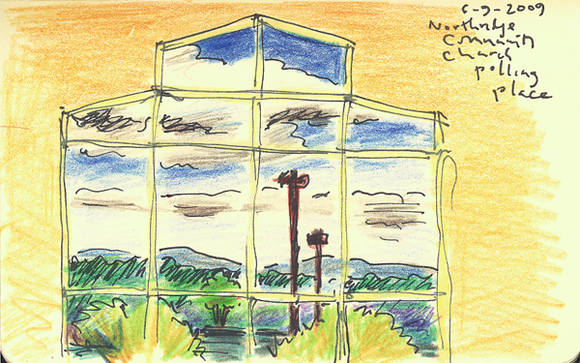
One Moment on the Trail, or A Roundabout Weird Way to Realize Something About Twitter
“The trail leads through the veil.” I was actually walking up a trail when I decided to see if the voices I sometimes hear – more about them some other time – had anything to say. That’s when I heard: “The trail leads through the veil.”
I experimented a moment, in case they might have meant “The trail leads through the vale” – which seemed possible, and which got me singing “Church in the Wildwood” – but soon I was satisfied the intended meaning was ‘veil’.
The trail I was on was a good-sized one, an old jeep trail, with so much forest around it, it was nearly a green tunnel. As soon as I heard this line, I felt the beautiful dense green woods ahead and on either side rotate, subtly disassemble, and shift, and my field of vision become capable of re-forming in new ways, as in a kaleidoscope. The world I normally know was still there but had become a blur. The trail became more symbolic than real, as if I were walking on a vector through a plane, almost like on a bridge in the sky or in space, rather than on a roadway through the trees. There was a moment of some kind of cognitive power, or possibility.
I couldn’t hold on to it. So I had to try to go back to it, as I’m doing by writing this, to see if I can manage a further step.
As soon as I wrote that, I remembered something from the moment. I’d been assuming that whatever there was to discover in that “re-formed” reality would be visual, but apparently it wasn’t going to be that easy. It did involve a visual clue – in the broken stained glass blur of colored pieces of woods and sky, I suddenly realized there was one odd, blank, completely white piece – one piece that didn’t belong with the others. The trail had to go through that piece.
As soon as I focused on the blank piece, it led into sound. Strangely enough, it was something like a podcast, or a radio program, but of a kind that I don’t think yet exists. A spoken-word Twitter feed.
Specifically, for me, it was much like one of those apps that lets you organize what you’re getting on Twitter. It was a sort of symposium or collective feed from four very different people. One was @MJonesStudio, or fellow artist and writer Michael Douglas Jones. Michael tweets often, in a rich vein of material closely related to my own work. Another was @samwisebruce, longtime editorial peer and colleague Sarah Bruce, who hardly ever tweets but who understands my work and has always been one of my ‘early adopters’. Third was @LaurenceShatkin, because even though Laurence tweets almost exclusively about his professional findings as a leading career consultant, he’s my friend and college roommate and I like to keep track of what he’s doing and vice-versa. Finally there was David Johansen, of the New York Dolls, who doesn’t seem to be on Twitter but who should be.
Needless to say, perhaps, but none of these people bears any responsibility for this crazy construct.
Here’s the thing: I couldn’t understand a word they were saying. That’s when I realized something critical about the people I follow (and who may follow me) on Twitter. It isn’t – necessarily — the specific things they say. It’s often just the sound of their voices – as befits a program named after bird songs. It’s a sympathetic, or inspiring, or challenging, or reassuring personal chorus. I realized what I was meant to take from them was encouragement, or courage. Perhaps this is completely circular, but going into that white, blank piece of mystery gave me courage to write this, first of all. Beyond that, I’ve taken encouragement to go further in my work than I may have done before.
An insight about Twitter doesn’t seem much like piercing a veil of metaphysical mystery.
Perhaps.